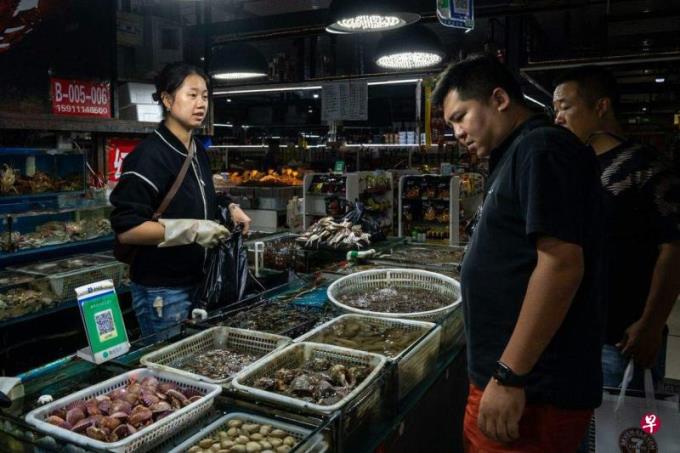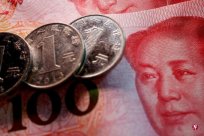
The confrontation between China and Japan around Fukushima nuclear waste water continued to upgrade. The Chinese ambassador to Japan Wu Jianghao emphasized that the Chinese government's full suspension of imported origin is "completely necessary" in Japanese aquatic products;Operators use Japanese aquatic products to make meals.
The analysis of scholars interviewed that the incident will exacerbate the tension between China and Japan, and it may also strengthen the four -sided relationship between the United States, Japan, and South Korea and the Philippines.
After Japan officially launched the Fukushima nuclear waste water, China has announced a full suspension of imported origin as Japanese aquatic products on Thursday (August 24).
The General Administration of Market Supervision of China has increased its efforts to supervise the safety and salt prices of aquatic products on Friday (August 25), and announced that food production and operators are strictly prohibited from procurement of food and operators, using the place of origin for Japanese aquatic products for Japanese aquaculture, making meals or carriedoutSales, including online sales.Officials will also strengthen safety sampling inspections on imported aquatic products sold in the market.
Nuclear waste water related food safety has aroused widespread attention from Chinese folks, and many places have appeared in panic to buy edible salt on Thursday.The General Administration of Market Supervision emphasizes that it will strengthen the monitoring of salt prices in various places, increase law enforcement efforts, and strictly investigate the price illegal acts such as hoarding and fabricating price increase information.
China Salt Industry Group issued a statement on Thursday emphasized that it will ensure the supply of salt market, and pointed out that the current proportion of salt products in China is 87%of wells salt, 10%of sea salt, and 3%of lake salt.The production of well salt and lake salt are not affected by Japanese nuclear pollution. This central enterprise calls on the public not to blindly buy salt.
Chinese officials continue to criticize Japan while tightening food safety measures.Japanese Prime Minister Kishida Kishita asked China to immediately cancel the ban on imported Japanese seafood on Thursday. The Chinese Embassy in Japan issued a statement, saying that Chinese ambassador Wu Jianghao launched a righteous protest to the Japanese government on the launch of the Fukushima nuclear pollution water in Japan.
Wu Jianghao also emphasized: "It is taken for granted and completely necessary to announce that the Chinese government's comprehensive suspension of imported imports of imports is naturally."
Chinese Foreign Ministry spokesman Wang Wenbin once again criticized Japan to "openly pass the risk of nuclear pollution to the world at a regular press conference on Friday. This is extremely selfish and extremely irresponsible."
The People's Daily also published a comment article on the signature "Bell" to warn Japan that "harm the common interests of the international community will be paid."
Nuclear wastewater issues are not reduced online in China
Japan's nuclear wastewater discharge is continuously burn in the crusade caused by the Chinese folk; three of the top ten hot search entries on the Weibo hot search list on Friday morning are related to the Japanese nuclear wastewater.Chinese painter Wu Heqin also published works on Weibo, ridiculing that Japan wants human beings to be exhausted.
The "Japanese nuclear radiation product lightning list" appeared on the Chinese network, and many Japanese brand skin care products and care products were named; the news of Japanese skin care products was returned on social platforms.
According to Bloomberg, the Japanese Consulate General in Shanghai urged Japanese to avoid speaking Japanese loudly in public in China and pay close attention to the surrounding environment when going to the consulate.
Fukushima nuclear waste water discharge is currently caused a large rebound at the Chinese and Russian governments, while other near -neighboring countries, including South Korea and the Philippines, have not criticized them.Lin Dawei, a senior researcher at the East Asian Research Institute of Singapore, was analyzed during an interview with Lianhe Zaobao that the nuclear wastewater incident may promote Japan's public opinion to further support Japan's relationship with the United States and the Philippines and the Philippines.The criticism of Chinese public opinion may promote the Chinese government's stronger response to Japan.
According to Chinese experts, the radioactive nuclear elements of nuclear wastewater in Japan will flow to the East China Sea in China one year later.Zhu Feng, dean of the School of International Relations of Nanjing University, pointed out in an interview that whether the incident would be upgraded and still depends on whether the nuclear waste water will cause specific environmental and health problems.This undoubtedly brings new uncertainty to Sino -Japanese relations, and also increases the tension between the two countries.




